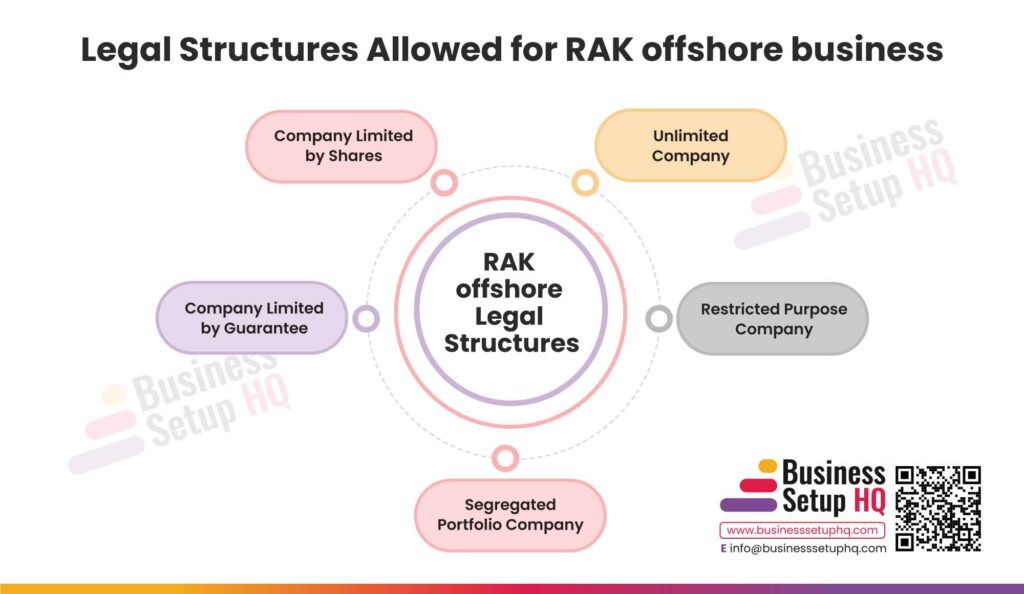Navigating the Globe of International Business: Insights on Offshore Company Formation
Offshore Company Formation offers a strategic method for worldwide business operations. It uses noteworthy benefits, such as tax optimization and improved privacy. Nevertheless, the process is not without its challenges. Recognizing the intricacies of governing requirements and different jurisdictions is vital. As companies take into consideration these options, the actions entailed can greatly impact their long-term success. What are the key elements that can bring about reliable overseas management?
Recognizing Offshore Companies: Interpretation and Function
Offshore business have actually come to be a prime focus in worldwide organization conversations because of their unique lawful and monetary structures. These entities are established in territories outside of the owner's country of residence, commonly with positive regulatory environments. Commonly, overseas companies offer different purposes, such as asset security, tax obligation optimization, and enhanced personal privacy. They can run in several markets including profession, finance, and innovation, offering versatility for worldwide operations.The specifying characteristic of an offshore Company is its capacity to conduct business worldwide while taking advantage of reduced tax liabilities and governing problems. This framework allures to entrepreneurs and financiers looking for to expand their portfolios and take care of risks efficiently. Additionally, several overseas jurisdictions use rewards to draw in international financial investment, bring about an increase in the Formation of these business. Comprehending the interpretation and objective of overseas companies is important for maneuvering with the intricacies of worldwide commerce and capital circulation.
Trick Benefits of Offshore Company Formation
The Formation of an overseas Company provides several engaging advantages that attract capitalists and business owners alike. Among the key advantages is tax optimization; many territories supply beneficial tax obligation prices or exceptions, enabling services to make best use of revenues. Additionally, offshore companies often delight in better privacy, as numerous jurisdictions have strict privacy laws protecting the identities of Company proprietors and shareholders.Another considerable advantage is asset security. Offshore entities can secure possessions from political instability and financial slumps in the owner's home country. Furthermore, these firms can assist in international profession, offering easy access to worldwide markets and simplifying cross-border transactions.The flexibility in business framework additionally attract local business owner, as overseas firms can be customized to fulfill details operational requirements. Overall, the strategic Formation of an offshore Company can result in improved financial safety and security, functional efficiency, and a robust global existence.

Common Challenges in Developing Offshore Entities
Developing overseas entities presents a number of challenges that services have to browse. Secret concerns consist of governing compliance, which can vary significantly throughout jurisdictions, and the effect of cultural distinctions on operations. Furthermore, companies have to consider the prices and threats related to keeping an offshore visibility, which can affect overall viability.
Regulatory Conformity Issues
Navigating regulatory compliance concerns poses substantial obstacles for companies when they look for to establish overseas entities. Each territory has its very own collection of laws and policies, which can vary extensively and might be challenging to browse. Companies usually face obstacles related to tax obligation compliance, anti-money laundering guidelines, and coverage demands. Additionally, modifications in international tax obligation laws can create uncertainty, making it important for organizations to stay updated on conformity obligations. Failure to comply with these laws can cause extreme fines, including fines and reputational damage. As a result, understanding the lawful structure and involving with local experts is necessary for effective offshore procedures, ensuring that organizations can run within the boundaries of the law while optimizing their international approach.
Social Differences Influence

Price Considerations and Dangers
Guiding through the monetary landscape of overseas entity Formation presents different price factors to consider and fundamental dangers. Initial configuration expenses frequently consist of lawful costs, registration expenses, and conformity costs, which can accumulate significantly. In addition, ongoing upkeep expenditures such as yearly costs and accounting services must be factored in. Varying governing environments in different jurisdictions pose dangers, possibly leading to legal difficulties or unforeseen costs. Businesses may likewise experience difficulties connected to taxation, financial, and reputational concerns, which can impact success and operational effectiveness. Subsequently, potential entrepreneurs must perform extensive due diligence and financial projecting to alleviate these dangers and guarantee sustainable development. Understanding these cost factors to consider is crucial for effective overseas business ventures.
Steps to Establish an Offshore Company
Developing an offshore Company entails a number of important actions that need mindful consideration. Secret variables consist of ensuring and choosing the appropriate territory compliance with regional policies, alongside collecting needed paperwork. Comprehending these components is crucial for a successful overseas organization setup.
Choosing the Right Territory
Selecting the ideal jurisdiction is important for any individual aiming to establish up an overseas Company, as it can substantially impact the service's legal commitments, tax obligation obligations, and operational convenience. Different variables must be considered, consisting of the political stability, governing atmosphere, and tax obligation incentives used by prospective jurisdictions. Popular choices commonly include countries with beneficial tax routines, such as the British Virgin Islands or Cayman Islands, because of their reduced or absolutely no tax prices. Additionally, the convenience of operating and the credibility of the territory can influence financier self-confidence and market gain access to. Inevitably, an educated decision based upon comprehensive study will assure the offshore Company is placed for long-lasting success and compliance with worldwide standards.
Called For Documentation and Compliance
When establishing an overseas Company, recognizing the needed documents and conformity requirements is crucial to guarantee a smooth process. Key papers typically include a certificate of consolidation, a memorandum and posts of organization, and evidence of identification for directors and shareholders. Some jurisdictions may need extra info, such as service strategies or bank referrals. Conformity with neighborhood regulations is essential, which frequently involves designating a registered agent and keeping a licensed workplace. Normal coverage and adherence to tax obligation responsibilities need to likewise be taken into consideration. Failing to adhere to these needs can bring about penalties or perhaps dissolution of the Company. Comprehensive prep work and appointment with lawful specialists can assist navigate these complexities efficiently.
Selecting the Right Jurisdiction for Your Offshore Company
Just how can one establish one of the most ideal jurisdiction for an offshore Company? Selecting the right jurisdiction requires cautious factor to consider of numerous factors. Initially, the lawful and tax setting plays an essential function; jurisdictions with favorable tax obligation regimens may enhance organization productivity. In addition, the political stability and financial environment of an area can influence lasting company viability.Another essential aspect is the schedule of economic services and financial infrastructure, which assist in smooth operations. Potential local business owner ought to additionally think about the ease of working, including the rate of enrollment and the quality of regulations.Furthermore, language obstacles and cultural differences can influence operations; consequently, aligning with a jurisdiction that aligns with company goals and individual comfort is essential. Eventually, thorough research and specialist suggestions can lead entrepreneurs in making an informed decision that aligns with their tactical goals.
Conformity and Governing Considerations

Best Practices for Handling an Offshore Business
Taking care of an offshore service needs calculated planning and careful execution to enhance efficiency and reduce threats. First, developing a robust conformity framework is important to navigate varying laws across territories. Normal audits and risk assessments assist identify prospective vulnerabilities.Moreover, leveraging regional know-how through partnerships with regional specialists can enhance functional efficiency and cultural understanding. Making use of innovation, such as cloud-based monitoring systems, enhances communication and information administration, enabling much better decision-making. Additionally, keeping transparent economic documents and guaranteeing prompt tax filings are crucial to promote the Company's honesty. Buying staff training and development fosters a knowledgeable labor force, advertising technology and adaptability.Finally, developing clear performance metrics and crucial performance signs (KPIs) assists evaluate company development and notify calculated modifications. By adhering to these best techniques, firms can successfully handle their overseas operations, guaranteeing lasting success and sustainability in an affordable international marketplace.
Frequently Asked Concerns
What Is the Cost of Creating an Offshore Company?
The expense of forming an offshore Company varies widely relying on jurisdiction, legal requirements, and solutions required. Usually, expenses can range from a few hundred to numerous thousand bucks, consisting of registration, compliance, and annual charges.
How Lengthy Does It Require To Establish an Offshore Entity?
The moment required to establish an offshore entity differs considerably, commonly ranging from a couple of days to a number of weeks (offshore company formation). Factors affecting this duration consist of jurisdiction, needed documentation, and the effectiveness of the provider involved
Can People Type Offshore Companies Without a Company Companion?
Individuals can indeed create offshore firms without a company partner. Numerous jurisdictions enable single-member entities, equipping business owners to establish and handle their businesses separately, while still gaining from potential tax obligation benefits and lawful protections.
Exist Any Kind Of Tax Benefits for Foreign Investors?

What Sort Of Companies Generally Use Offshore Firms?
Offshore business are frequently used by different sectors, including innovation, money, and e-commerce. These entities commonly offer purposes such as asset defense, tax obligation optimization, and personal privacy, appealing to here both private business owners and multinational corporations. Offshore business have become a focal factor in worldwide service conversations due to their one-of-a-kind lawful and monetary structures. They can operate in several industries including trade, financing, and modern technology, providing adaptability for worldwide operations.The defining characteristic of an overseas Company is its ability to carry out company internationally while profiting from decreased tax obligation obligations and regulative burdens. In addition, offshore firms frequently delight in higher privacy, as numerous jurisdictions have rigid privacy laws safeguarding the identities of Company proprietors and shareholders.Another substantial benefit is asset security. These companies can help with international trade, giving very easy accessibility to global markets and streamlining cross-border transactions.The versatility in company structure also appeals to company proprietors, as offshore business can be customized to meet certain operational requirements. Picking the right jurisdiction is important for any person looking to set up an overseas Company, as it can substantially impact the service's lawful responsibilities, tax liabilities, and operational convenience.